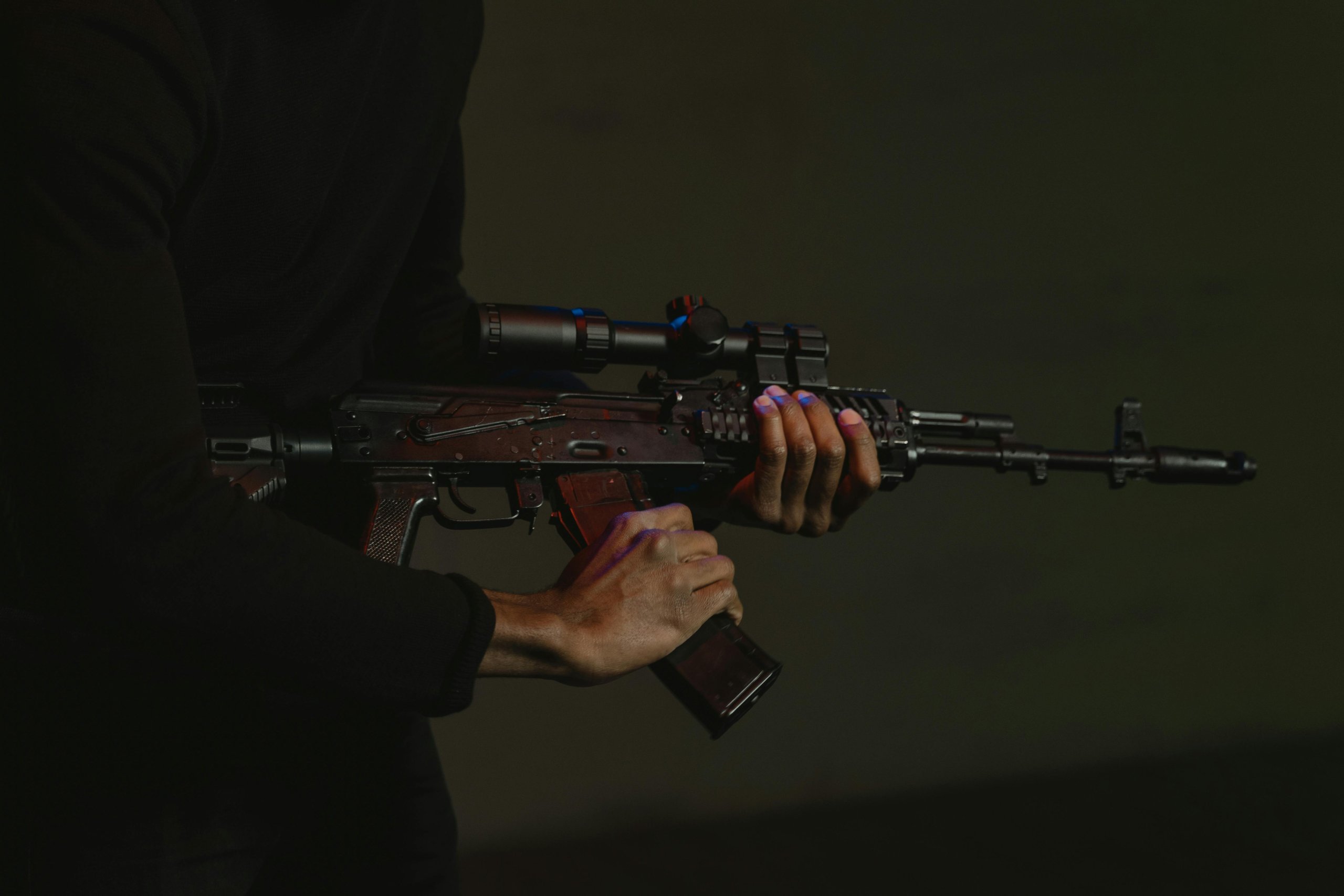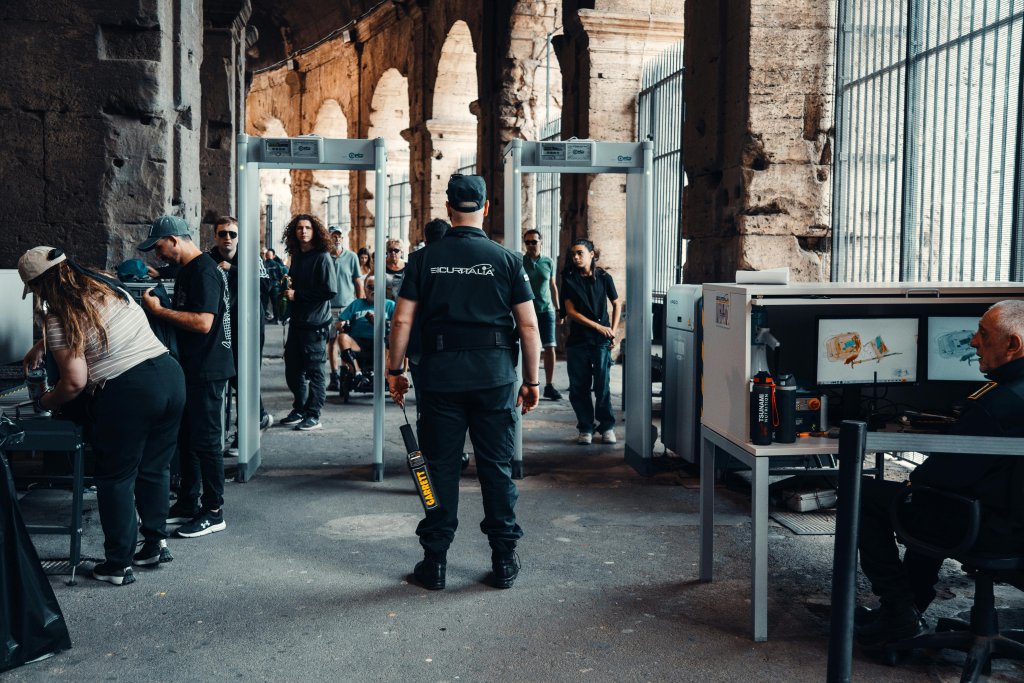
Security is more than guards standing at entrances. It is a complete system of measures designed to keep people, property, and assets safe. One of the most critical parts of this system is access control. In simple terms, access control is the process of deciding who can enter, who can leave, and what areas they can reach.
For security guards, access control is one of their main duties and responsibilities. Whether in an office, a residential compound, or a high-risk site, guards must make sure only the right people have access to the right places. This is not just about safety. It also builds trust, order, and peace of mind for everyone.
At Black Tiger Security, our Facility Security Assessments in Iraq , Executive Protection in Iraq, and Mobile Security Teams in Iraq all rely on strong access control procedures carried out by trained professionals.
What Does Access Control Mean?
Access control means managing and controlling entry and exit points. It is the process of identifying individuals, verifying their authorization, and allowing or denying access. This can be done by:
Access control is the selective restriction of access to a place or resource, ensuring that only authorized individuals can enter or use specific areas or information. Access control security involves identifying users, verifying their credentials, & granting or denying access based on predefined policies. Access control systems can be physical, such as doors secured with locks and keycards, or logical, such as firewalls and user permissions in software applications. Access control security guards protect facilities, data, and personnel. They encompass various methods and technologies, including biometric scanners, keypads, smart cards, and security tokens. Effective access control security services enhance an organization’s overall security posture and operational efficiency.
Why is Access Control Important?
Access control is one of the most important responsibilities of a security guard because:
- It Prevents Unauthorized Entry
By verifying each person, guards reduce the risk of intruders or criminals entering restricted areas. - It Protects People and Property
Proper access control ensures that only trusted individuals can reach sensitive areas such as offices, storage rooms, or cash-handling zones. - It Maintains Order
With controlled access, workplaces and events remain organized and safe. - It Reduces Internal Risks
Not every risk comes from outside. Access control also helps prevent insider threats. - It Builds Trust
Employees, visitors, and clients feel safer when they see professional guards managing access.
Types of Access Control Systems
Security guards often work with different types of access control systems. These include:
Physical Access Control :
The most common type. Guards check ID cards, visitor passes, or guest lists before allowing entry.
Electronic Access Control :
Systems such as swipe cards, PIN codes, or key fobs are used. Guards monitor and manage the system to prevent misuse.
Biometric Access Control :
Advanced systems that use fingerprints, face recognition, or retina scans. Guards oversee the technology and handle exceptions.
Vehicle Access Control :
In compounds, checkpoints, or parking areas, guards check vehicles entering or leaving. This may include inspection of Armored Vehicles for VIPs.
The Role of Security Guards in Access Control
While technology supports access control, human guards remain the most important part of the process. Their responsibilities include:
- Verifying Identities – Guards make sure people match their IDs.
- Checking Credentials – Ensuring access cards, permits, or passes are valid.
- Keeping Records – Logging visitors and vehicles.
- Monitoring Entry Points – Watching doors, gates, and barriers.
- Responding to Incidents – Handling unauthorized attempts or suspicious activity.
- Customer Service – Assisting visitors and guiding them through entry procedures.
Challenges in Access Control
Access control is not always easy. Guards may face challenges such as:
- Fake IDs or false information
- Pressure from crowds during events
- VIP or emergency situations requiring exceptions
- Insider threats from authorized individuals
- Technical failures of electronic systems
Access Control in Iraq
In Iraq, access control is especially critical due to higher risks. Security guards often manage entry for:
- Government Facilities – Ensuring only authorized staff enter.
- Embassies and NGOs – Protecting international staff and sensitive data.
- Oil and Gas Sites – Safeguarding high-value infrastructure.
- Banks and Cash Transfers – Working with Cash-in-Transit Services in Iraq.
- Residential Compounds – Protecting families and VIPs.
In these cases, access control is not just about checking IDs. It may also involve vehicle inspections, armed support, and coordination with High-Threat Protection in Iraq units.

Best Practices for Security Guards in Access Control
To perform their role effectively, guards follow best practices such as:
- Stay Alert at All Times
Never assume people are safe without proper verification. - Use Clear Communication
Speak politely but firmly with visitors. - Follow Procedures Consistently
Apply the same rules to everyone, regardless of status. - Document Everything
Logs and reports create accountability and improve future security. - Coordinate with Technology
Work with CCTV, alarms, and access systems for stronger control. - Prepare for Emergencies
Be ready to override systems and allow fast evacuation if needed.
Frequently Asked Questions (FAQ)
Q1: What is access control in security?
It is the process of managing entry and exit points to protect people and property.
Q2: Do security guards need to be polite in access control?
Yes. Guards must balance firmness with professionalism to maintain respect and trust.
Q3: Can access control be fully automated?
Technology helps, but human guards are still essential to handle exceptions and judgment calls.
Q4: Why is access control critical in Iraq?
Because of higher risks, it ensures safety for businesses, organizations, and communities.
Q5: What skills help guards in access control?
Observation, communication, problem-solving, and integrity are key skills.
Access control is not just about opening and closing doors. It is a system of responsibility, awareness, and professionalism carried out by skilled guards. They protect people, property, and assets by ensuring that only authorized individuals can enter or leave.
In Iraq, this responsibility becomes even more important. At Black Tiger Security, our guards deliver professional access control as part of our Facility Security Assessments in Iraq, Asset Protection in Iraq, and Mobile Security Teams in Iraq.
Contact Black Tiger Security
+964 780 8999 882
+964 770 2222 853
ceo@blacktiger-iq.com
Baghdad – Al Mansour – Al Dawoody Street
